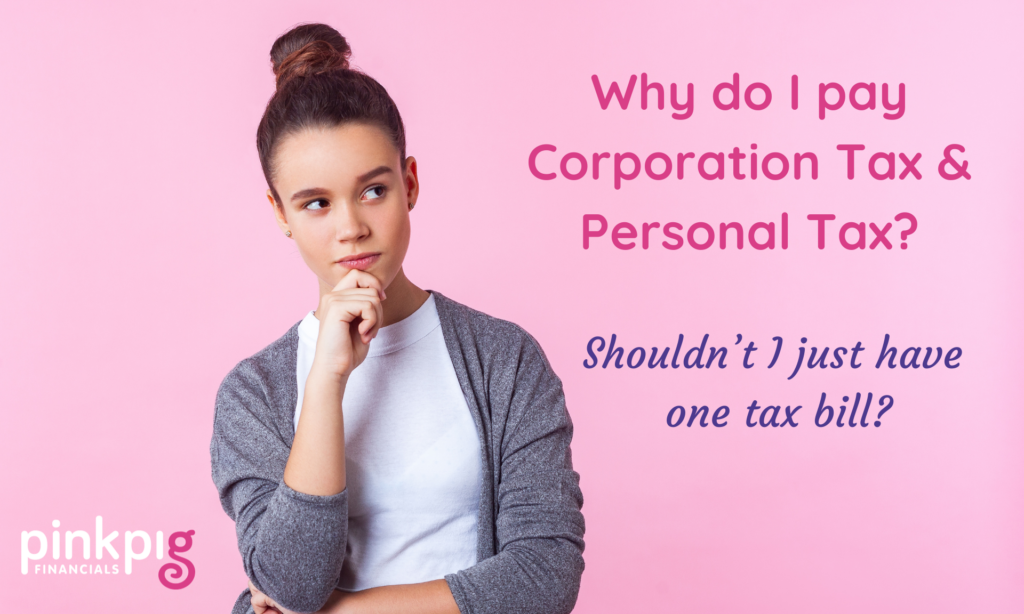You as a director and your business are classed as two separate entities – therefore both are taxable as Corporation Tax & Personal Tax.
- Corporation Tax is based on the profits of the company after your salary, but before dividends are taken out – and is currently payable at 19% for profits under £50k
- Your salary is classed as a tax-deductible expense, so reduces the company profits.
- A director’s personal tax return covers your salary, plus the dividends taken out of the company (plus any other income – interest/rental/other investments etc).
- If you are a sole director then salary is usually taken up to the tax-free threshold, then dividends are declared for the rest of the funds extracted from the company.
- Dividends are then taxed (personally, through self-assessment). For the 2024/2025 tax year, £500 is tax free, then the remainder is taxed at 8.75%.
For many businesses, this is is the most tax efficient way of structuring things, making the most of your allowances and lower tax rates, both for Corporation & Personal tax.
For example, if you were a Sole trader, with a profit under £50k you’ll be paying 20% tax, plus 9% National Insurance, so there is a total of 29% to pay.
If you were to take all of this as salary from a Limited Company, then you’d get your tax allowance, but would be paying NI and have an effective rate of 33.8% in tax & NI.
But, by getting your salary vs dividend mix right, you would be paying only your dividend tax, whilst also reducing your Corporation Tax.
As a Limited Company you have more tax allowances to take advantage of, and no NI to pay (although your salary is high enough to get your tick for the year for state benefits), and a total combined tax rate of 27.25%.
Blog Suggestion: What is the difference between salary and dividends?
If you’d like to understand your tax options and have a comparison to see if a Limited company structure is better for your tax efficiency, please book a discovery call with us today.

